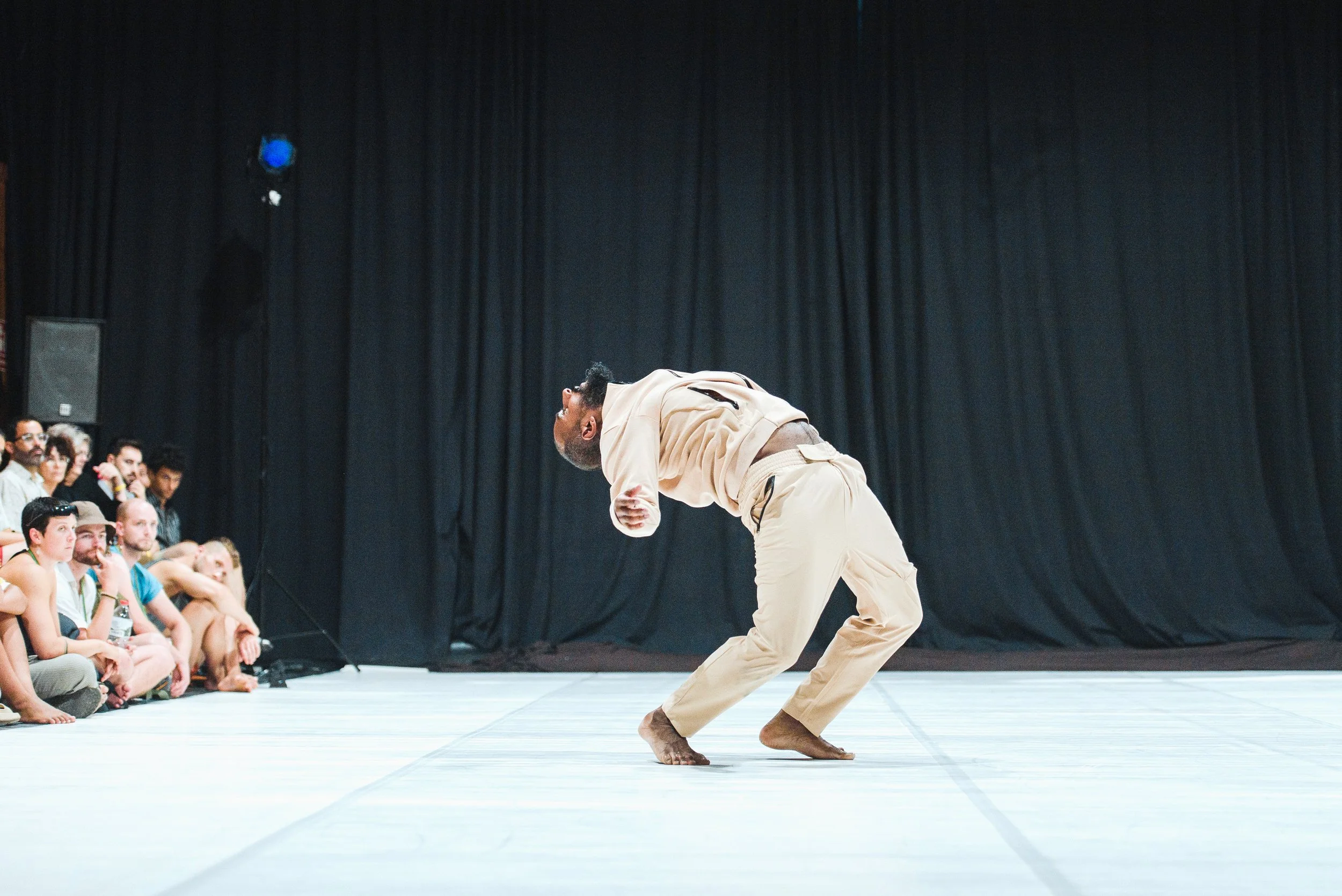Review: With humour and honesty, Rakesh Sukesh's because i love the diversity (this micro-attitude, we all have it) digs into complexities of discrimination and immigration
Free-associative stories and dance stitched loosely together to match ginormous sari tapestry that unfurls in Indian Summer Festival/PuSh Festival/The Cultch show
Rakesh Sukesh employs movement to unexpected and eclectic effect in because i love the diversity (this micro-attitude, we all have it).
because i love the diversity (this micro-attitude, we all have it) continues at Performance Works to January 24 at 7:30 pm as part of the PuSh International Performing Arts Festival, copresented by Indian Summer Festival and The Cultch
RAKESH SUKESH’S free-wheeling tapestry of vibrant storytelling and bursts of movement is almost impossible to categorize. His reflections on immigration, art, and racially biased “micro-attitudes” take the form of hilarious F-bomb-laced memories and thought-provoking physical contortions of frustration. Amid all this there are segues into yogic breathing, towering Hindu gods, and even hot pizza.
If because i love the diversity (this micro-attitude, we all have it) sounds all over the place, it kind of is, but that’s also part of its charm—helped by our Indian-born, Belgium-based solo narrator’s immense likability, and unaffected honesty about what it’s like to leave your home and take your dance to the West. A bit like its title, the new show could use some editing and flow, but it feels fresh and risky.
Sukesh arrives dressed in a cream Adidas tracksuit for this work written with Vancouver’s Marcus Youssef and commissioned by the PuSh International Performing Arts Festival. The opening true story recounts his experience of unknowingly becoming the poster boy for a right-wing Estonian anti-immigration campaign; its members had caught Sukesh in a random photograph shot on the streets of Tallinn, where he had been visiting as a university lecturer.
That event triggers stories about micro-attitudes he faces in his travels as a dance artist—and how he’s seen or judged as a “foreigner” in different places. We hear about that time he was mistaken not once, but twice in the same lobby as an Uber food-delivery driver.
Some of the most insightful moments come when Sukesh describes the way he’s judged for his movements by Western viewers and colleagues who see them as somehow wild, exotic, or unsophisticated. He illuminates how virtuosic the stamping of the feet in classical Indian dance actually is, and the intricate muscle articulation of that form’s exaggerated facial expressions. Scenes like these make you question your assumptions, and realize the complexity of discrimination at its “micro” levels.
When racism arises, Sukesh embodies it by turning his arm into a gnarled claw; when he’s frustrated and shocked by how he’s treated, he explodes in every direction. But there are plenty of funny moments, too—including the artist’s ever-changing roster of girlfriends. We’re left wanting more about his homeland growing up in Malabar—there’s a beautiful reference to it being the source of black pepper—and his experiences of the caste system, but that’s probably for another show.
In no way does Sukesh come off like he’s positioning himself as a victim of racism. Rather, with his openness, his generosity (there’s even a breaking of bread—or at least pizza dough—together), and ideas of spiritual unity, the dancer is putting forward a hopeful invitation to understanding and connection. We won’t give away much more, except to say a ginormous—and gorgeous—crazy quilt of saris eventually unfurls and shapeshifts in Sukesh’s hands. There may be no better symbol for the feel of this loosely stitched-together patchwork of ideas, moments, and movement—vibrant, complex, and covering a lot of ground.














